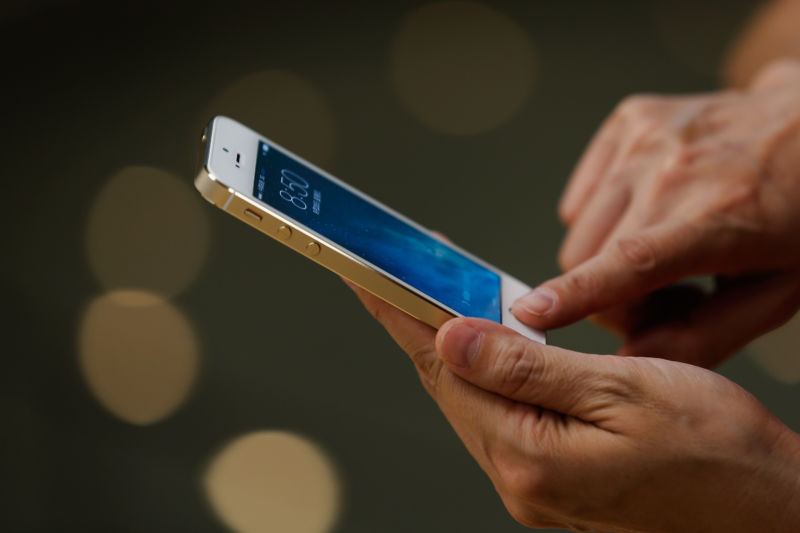Cops take dead man’s smartphone to his corpse in attempt to unlock it

In a very unusual move, police detectives in Largo, Florida, recently went to a local funeral home and located the body of a man named Linus Phillip. The 30-year-old had died days earlier at the hands of a different Largo officer.
The detectives then attempted to use the fingers on Phillip’s body to unlock his own smartphone, which had been recovered from the scene. Their efforts were not successful.
For years, law enforcement officials nationwide have said that they struggle with the so-called “Going Dark” problem—the idea that strong encryption on smartphones is making it significantly more difficult for police to access data held there.
Ars and other media outlets have reported on instances in which police have asked living people to attempt to unlock a phone with their fingerprint, but we are not aware of many instances where this happened with a dead body, particularly one when that person was killed by an officer.
Three different lawyers told Ars said that the Phillip case was troubling, and they all agreed that it’s extremely difficult if not outright impossible for the estate of a dead person to assert an alleged 4th Amendment violation. Or, put another way, dead people have no privacy rights.
“This feels pretty grotesque to have the cops taking a person who is deceased, to unlock their phone,” Blake Reid, a law professor at the University of Colorado, told Ars.
Traffic stop gone awry
The story begins just a few weeks ago, on Friday, March 30, 2018. Linus Phillip got pulled over at a gas station by Largo police officers in this Florida town just outside of Tampa.
According to reporting by the Tampa Bay Times, which was partly based on a letter released by the Office of the State Attorney, police were concerned that Phillip had illegally tinted windows on his black Nissan sedan.
As the two officers approached the Nissan, they believed that they smelled marijuana from the car as Phillip got out and left the driver’s side door open.
After a brief conversation, police say, Phillip jumped back into the driver’s seat of his own car and tried to drive away.
One of the officers, Matthew Steiner, was “trapped halfway” in the Nissan as Phillip tried to quickly drive backwards and forwards (presumably as a way to shake Steiner loose), all while the driver’s side door remained open. (The other officer, Prentice Ables, had already gotten out of the way.)
As he was being “dragged” by the car, Steiner shot at Phillip four times in self-defense. Steiner then was finally freed from the car, but was “brushed” by the moving car door.
Moments later the Nissan, with Phillip at the wheel, hit a thick post before stopping between a pair of gas pumps. With Phillip subdued, the officers began offering medical treatment and summoned paramedics. He was later pronounced dead at Largo Medical Center.
According to the paper, police eventually found a “significant amount” of cocaine and marijuana in Phillip’s car.
“At the time, the officer felt he was in peril for his own life and took action,” Lt. Randall Chaney told reporters at a news conference held Friday night, hours after the incident. “It stopped the action of the suspect at the time, and it may very well have saved people’s lives in the parking lot that night.”
Probably legal
Days later, two police detectives arrived at the Sylvan Abbey Funeral Home in Clearwater. Phillip’s fiancée, Victoria Armstrong, happened to be there at the time.
Somehow, the officers were allowed access to Phillip’s body, where they “tried to unlock the phone by holding the body’s hands up to the phone’s fingerprint sensor.”
Armstrong told the Tampa Bay Times that she felt “disrespected and violated” that officers were able to manipulate her fiancé’s body in this way.
Abraham Rein, a Philadelphia-based attorney who specializes in information privacy law, said that he found the police’s tactics in this case to be “ghoulish.”
“There’s something troubling about stranger walking into a funeral home and handling the body without any notice to the family,” he said, underscoring that what the police did was probably legal, even if it feels creepy.
Another attorney, Riana Pfefferkorn, a cryptography fellow at Stanford Law School, underscored the fact that not only was going to a dead person’s fingerprints unsettling, but that it was questionable from a practical perspective.
“This gives cops a perverse incentive to delete any evidence and films or text messages,” she told Ars. “What’s to stop them from doing that if they learn that this is a viable technique and if the person is dead?”
The Office of the State Attorney did not respond to Ars’ request for comment.
Ars also specifically asked the Largo Police Department: “Has the LPD attempted anything like this previously? Use a body to attempt to unlock a phone? Does the LPD encounter a lot of devices that it can’t unlock?”
Sgt. Richelle Bradshaw, a police spokeswoman who provided previously released copies of video footage of the shooting incident and the State Attorney’s letter, emailed: “We are not commenting or providing any further information at this time.”
John Trevena, an attorney representing the estate of Linus Phillip, also did not respond to Ars’ request for comment.
https://arstechnica.com/?p=1300459